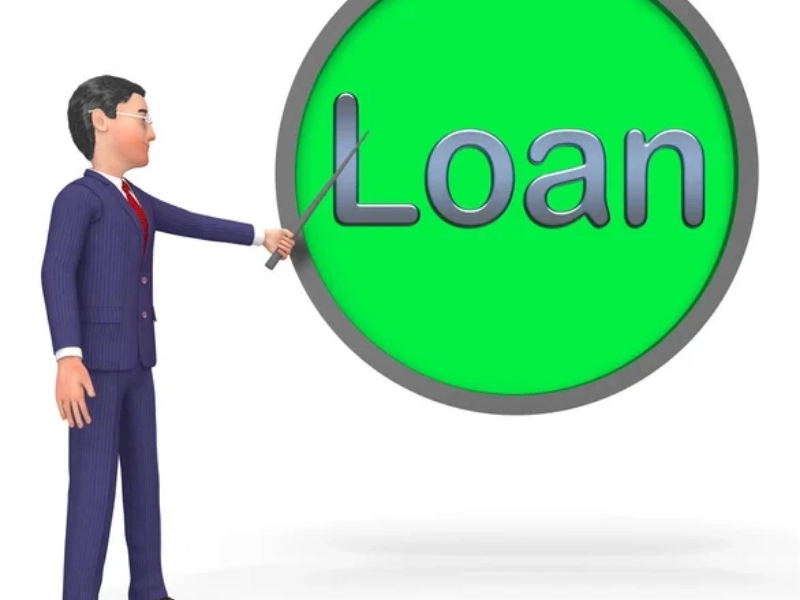As soon as financial difficulties emerge, it's critical to contact your lender. They can be able to assist you in avoiding foreclosure and preserving your house. You may be able to temporarily suspend or lower your payments via forbearance, which is provided by a mortgage servicer or lender. If you experience unforeseen bills or lose your work, this can be helpful.

 Prioritizing your needs over your wants can be difficult to do when you're in financial trouble. However, you should make an effort to refrain from missing payments, as this may have long-term effects. Examine your spending plan and budget carefully before calling your lender to determine if there are any areas where you may make short-term savings. Additionally, if you haven't already, think about taking funds out of other assets or emergency savings.
Your gross monthly income, fixed monthly loan payments, and other costs will be requested by lenders. They can compute your debt-to-income (DTI) ratio with this. Although this can change, a typical mortgage calculation requires 45% of your gross monthly income to be eligible for a loan. Always select a loan amount based on your financial and personal objectives.
Prioritizing your needs over your wants can be difficult to do when you're in financial trouble. However, you should make an effort to refrain from missing payments, as this may have long-term effects. Examine your spending plan and budget carefully before calling your lender to determine if there are any areas where you may make short-term savings. Additionally, if you haven't already, think about taking funds out of other assets or emergency savings.
Your gross monthly income, fixed monthly loan payments, and other costs will be requested by lenders. They can compute your debt-to-income (DTI) ratio with this. Although this can change, a typical mortgage calculation requires 45% of your gross monthly income to be eligible for a loan. Always select a loan amount based on your financial and personal objectives.
 Lenders will probably see multiple missed mortgage payments as a red flag. In order to make a financing decision, they might then obtain your credit file from one of the three main consumer credit agencies (Experian, TransUnion, or Equifax). This will show up on your credit report, as it is a hard inquiry.
Although a hard inquiry may lower your credit score temporarily, it will eventually rise again. Usually, a hard inquiry is all that a lender does when you ask for credit, such as a credit card, mortgage, or vehicle loan.
By distributing your credit applications over time and closely monitoring your Experian (r) credit score, you can reduce the negative effects of hard inquiries. It's free to check your own credit report, and it can help you identify mistakes before they lower your ratings.
Lenders will probably see multiple missed mortgage payments as a red flag. In order to make a financing decision, they might then obtain your credit file from one of the three main consumer credit agencies (Experian, TransUnion, or Equifax). This will show up on your credit report, as it is a hard inquiry.
Although a hard inquiry may lower your credit score temporarily, it will eventually rise again. Usually, a hard inquiry is all that a lender does when you ask for credit, such as a credit card, mortgage, or vehicle loan.
By distributing your credit applications over time and closely monitoring your Experian (r) credit score, you can reduce the negative effects of hard inquiries. It's free to check your own credit report, and it can help you identify mistakes before they lower your ratings.
 You can temporarily suspend or lower your mortgage payments with a forbearance. Usually, lenders want proof of your difficulty and your commitment to start making payments again after the forbearance expires. In addition, they have to provide you with the option to try a trial loan modification and waive late and online payment costs while you're in forbearance.
Lenders and investors have different criteria when it comes to forbearance agreements, but generally speaking, lenders want you to repay (with interest) the full amount of any overdue or reduced payments when the forbearance period expires. It's helpful to create concrete goals a few weeks or months in advance, like a job offer, a tax return, or the anticipated sale of an asset, that will signal when you'll be able to start making your monthly mortgage payments again. Your forbearance status might not be disclosed to the credit bureaus by certain loan servicers.
You can temporarily suspend or lower your mortgage payments with a forbearance. Usually, lenders want proof of your difficulty and your commitment to start making payments again after the forbearance expires. In addition, they have to provide you with the option to try a trial loan modification and waive late and online payment costs while you're in forbearance.
Lenders and investors have different criteria when it comes to forbearance agreements, but generally speaking, lenders want you to repay (with interest) the full amount of any overdue or reduced payments when the forbearance period expires. It's helpful to create concrete goals a few weeks or months in advance, like a job offer, a tax return, or the anticipated sale of an asset, that will signal when you'll be able to start making your monthly mortgage payments again. Your forbearance status might not be disclosed to the credit bureaus by certain loan servicers.
 Selling your house could be a possibility if you're struggling to make your mortgage payments. Because it takes money for them to hire an attorney, recover the mortgage amount, and promote the property for sale, mortgage servicers and lenders prefer not to proceed with foreclosure. Listing your home for sale could encourage them to pause the foreclosure process and prevent further harm to your credit report. You can also create a repayment plan in collaboration with a credit counselor approved by HUD.
Selling your house could be a possibility if you're struggling to make your mortgage payments. Because it takes money for them to hire an attorney, recover the mortgage amount, and promote the property for sale, mortgage servicers and lenders prefer not to proceed with foreclosure. Listing your home for sale could encourage them to pause the foreclosure process and prevent further harm to your credit report. You can also create a repayment plan in collaboration with a credit counselor approved by HUD.